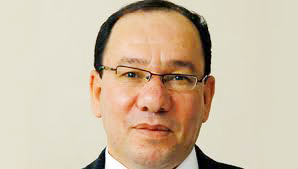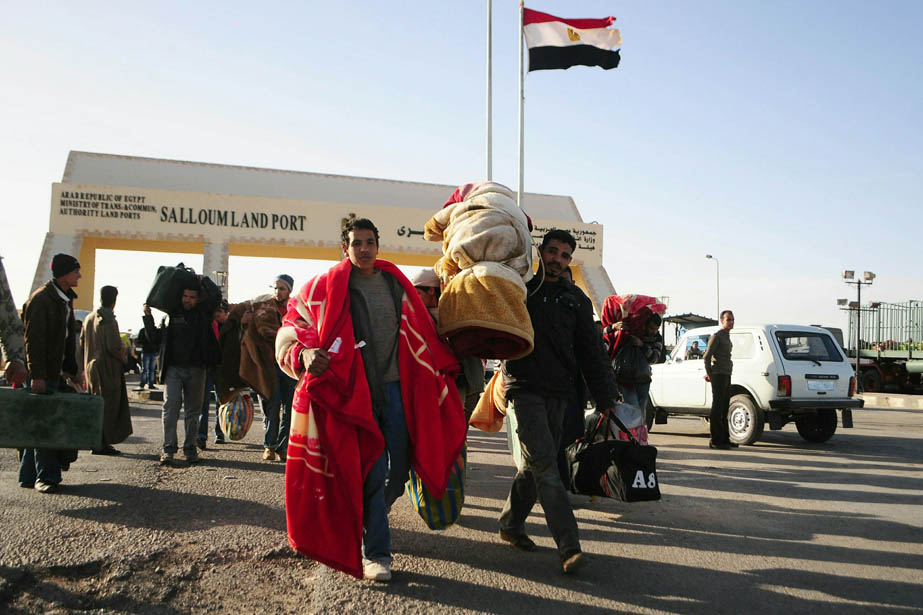The recent violence taking place in front of the Muslim Brotherhood’s headquarters in Mokattam over the past two days has pushed several writers to voice their frustration at the ongoing clashes. Other commentaried explored the recent visit of United States President Barack Obama to the Middle East, who did not visit Egypt while in the region. More than one writer questioned the future of the American-Egyptian future relations, especially after Morsi’s cancelled visit to the US.
Why he hasn’t been to Egypt
Mohamed Salmawi
Al-Masry Al-Youm newspaper
After the recent visit of US President Barack Obama to Israel, Salmawi is surprised that his Middle East trip did not include a journey to Egypt. The writer explores the history of the American-Egyptian political relations, stating that despite Egypt being an important country in the region, the ousted president Hosni Mubarak had limited its role in the Middle East to issues that relate to mediating between Hamas and Israel, according to whatever suits the American interests.
With the arrival of the Muslim Brotherhood regime, Salmawi condemns how the Egyptian position turned out to be even more restricted. This is seen in President Mohamed Morsi’s focus on the Palestinian cause and the cancellation of the Camp David Accords. As a result, the US does not see the importance of keeping Egypt among its main concerns at this moment, according to Salmawi.
From an American perspective, it is wiser for Obama to pay a visit to Israel and soothe the tense relations with the Israeli Prime Minister Benjamin Netanyahu, especially after the recent debates concerning Iran and the issues of settlements in the West Bank. Salmawi concludes his article by speculating that another reason for why Obama didn’t visit Egypt, bearing in mind that President Morsi’s expected visit to the US has been apparently cancelled, is that the American opposition inside the congress has raised its voice against his support to the Muslim Brotherhood in Egypt.
The NGO and the Islamist group
Emad Al-Din Hussein
Al-Shorouk newspaper
Hussein debates the Muslim Brotherhood’s attempt to legalise their status as a non-governmental organisation. Although the move sounds good, the process is insufficient and needs completion, states the writer. Looking back at the history of the Islamist group, Hussein states how the Muslim Brotherhood members used to argue that their group is legitimate. After the 25January Revolution, their leader became the president of the republic.
Yet, they continued to remain illegal. While drafting the laws regulating the works of NGOs, the group has earlier voiced its objection to the fact that civil organisations should practice politics. They also proposed that all NGOs should display their funding and disclose their sponsors.
Now, the group’s members will have to abide by the rules they once suggested for the NGO law. Hussein believes that the only solution for the group is to refrain from practicing politics, leaving this role to the political arm of the group, the Freedom and Justice Party (FJP).
In practice however this is unlikely to happen because everybody knows, says Hussein, that the FJP’s marching orders come from the Islamist group. The writer affirms that the only solution to the Islamist group’s complicated position is to have all the political groups uniting against the Muslim Brotherhood. They should stay hand in hand to directly tell the group that it is only one part of the society and will never be representative of the entire Egyptian community.
The revolution’s suicide
Wael Qandil
Al-Shorouk newspaper
The recent clashes in Mokattam prompt Qandil to condemn all sorts of violence spreading across the country. He believes that whoever is responsible for the bloody incidents has contributed to the death of the 25 January Revolution. The 18-day uprising was initially founded by all segments of the Egyptian society with citizens of all political inclinations.
Regardless of whether the main trigger of the recent clashes belonged to the anti-Islamist current or the Muslim Brotherhood, Qandil states that the happenings have split the partners of the 2011 Revolution. He reminds his readers of the Egyptian unity that managed to push this revolution to a great success. However, the scenes of citizens being dragged along the ground, beaten and almost killed, have shattered the once-rosy picture of the revolution.
These images of violence in front of the Muslim Brotherhood’s headquarters reminded Qandil of the days when Islamists and liberals clashed in Tahrir Square. At that time, whoever went to the square knew he or she would be contributing to the beginning of a civil war in Egypt.
The writer states that what happened over the last weekend is an imitation of the clashes near Itihadiya Palace, when the Muslim Brotherhood members demonstrated in support of President Morsi. He concludes saying today we cannot attack Muslim Brotherhood members, but we should instead condemn all political groups who have sent their members or supporters to Mokattam to start a fight with the Ikhwan.






